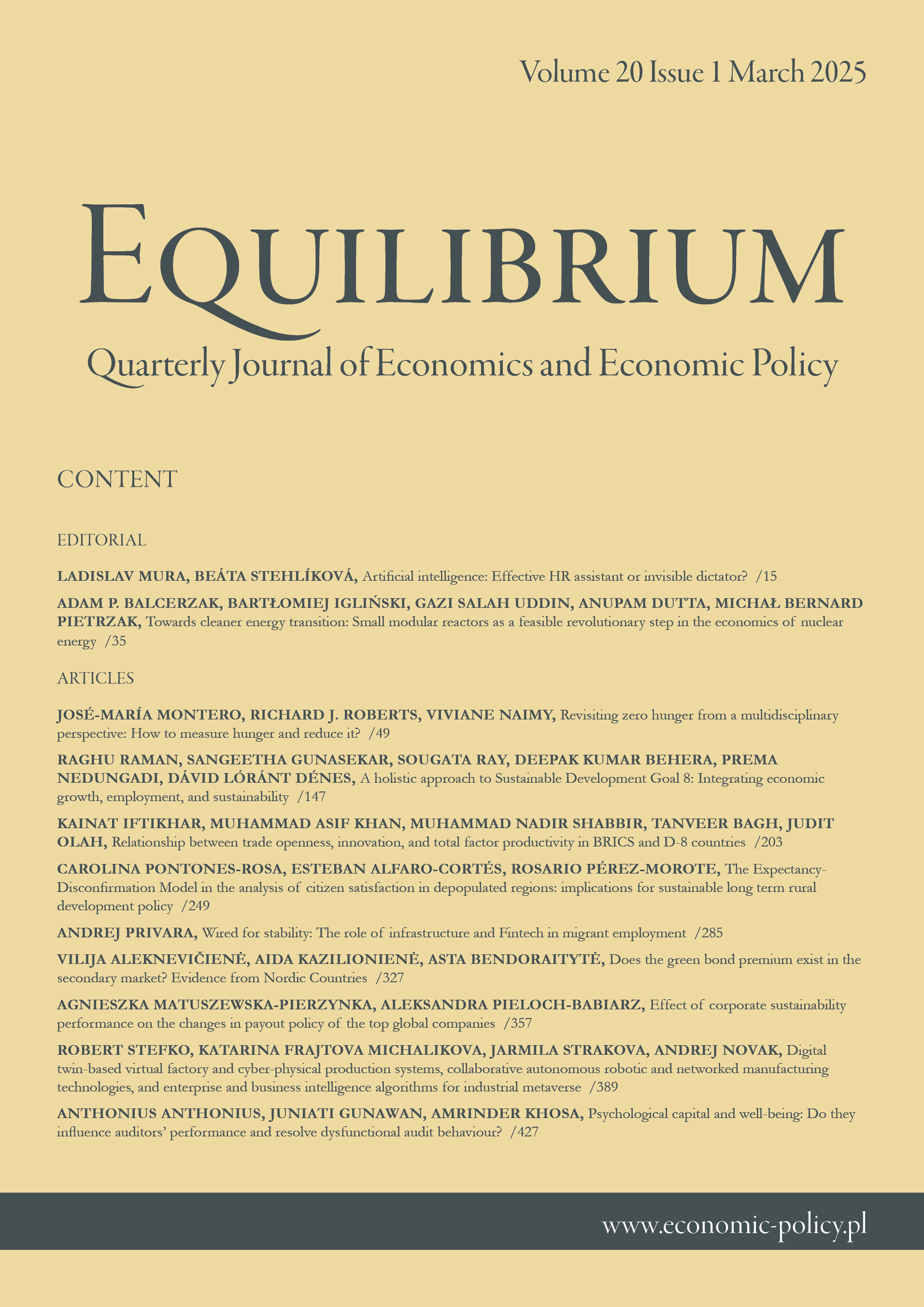The Expectancy-Disconfirmation Model in the analysis of citizen
satisfaction in depopulated regions: Implications for sustainable
long term rural development policy
The Expectancy-Disconfirmation Model in the analysis of citizen
satisfaction in depopulated regions: Implications for sustainable
long term rural development policy
Author(s): Carolina Pontones-Rosa, Esteban Alfaro-Cortés, Rosario Pérez-MoroteSubject(s): National Economy, Agriculture, Social development, Rural and urban sociology
Published by: Instytut Badań Gospodarczych
Keywords: Expectancy-Disconfirmation Model; rural development policy; citizen satisfaction survey; depopulation;
Summary/Abstract: Research background: Understanding the cognitive processes used by citizens to form theirsatisfaction is essential in the design of sustainable rural policies. This research holds signifi-cant relevance for other countries facing rural depopulation, governance and demographicchallenges. The authors apply the Expectancy-Disconfirmation Model (EDM) to explain citizen satisfaction with rural development policies, considering the unique challenges and ex-pectations of rural communities.Purpose of the article: The authors investigate the EDM capacity to explain satisfaction in theunder-researched rural context. Incorporating a territorial perspective into the study of satis-faction may offer a better understanding of the decision-making processes rural citizens use tomake evaluations of government policies. In addition, it is interesting to address the lack ofconsensus on the ability of expectations to act as a predictor of citizen satisfaction and theinsufficient attention paid to the distinction between normative and predictive expectations.Methods: The article is based on the results of a survey to rural citizens of the so-called "Hol-lowed-out Spain”. The authors apply the Structural Equation Modelling methodology toestimate two alternative models that explain the behavior of the variable satisfaction. Thesetwo models differ in the variable used to measure expectations.Findings & value added: The results obtained allow us to affirm that the EDM acceptablyadapts to the rural context. Perceived disconfirmation exerts the largest effect on satisfaction.The central prediction of the EDM that expectations are a primary driver of satisfaction is notconfirmed, although empirical expectations do improve the performance of the model. Somegovernance implications arise: only if expectations are considered will investments in improv-ing a public service impact positively on citizen satisfaction. Administrations may attempt toinfluence such expectations, albeit deploying an ethical approach. Enhancing transparencycould be useful to reduce dissonances between actual performance and that perceived bycitizens.
Journal: Equilibrium. Quarterly Journal of Economics and Economic Policy
- Issue Year: 20/2025
- Issue No: 1
- Page Range: 249-284
- Page Count: 36
- Language: English

